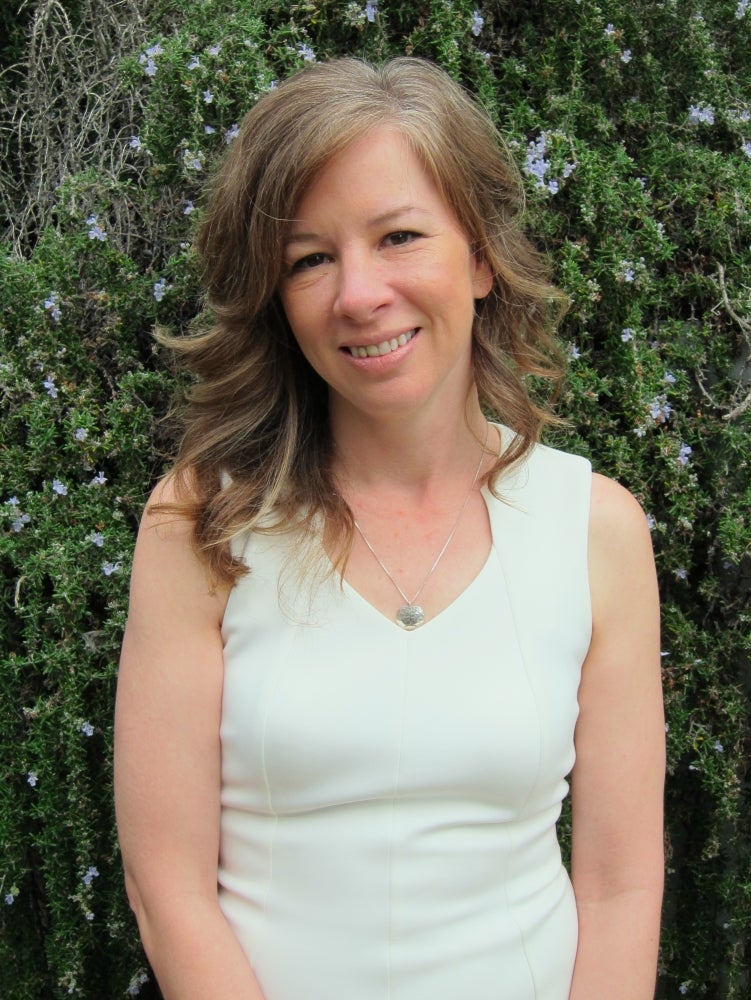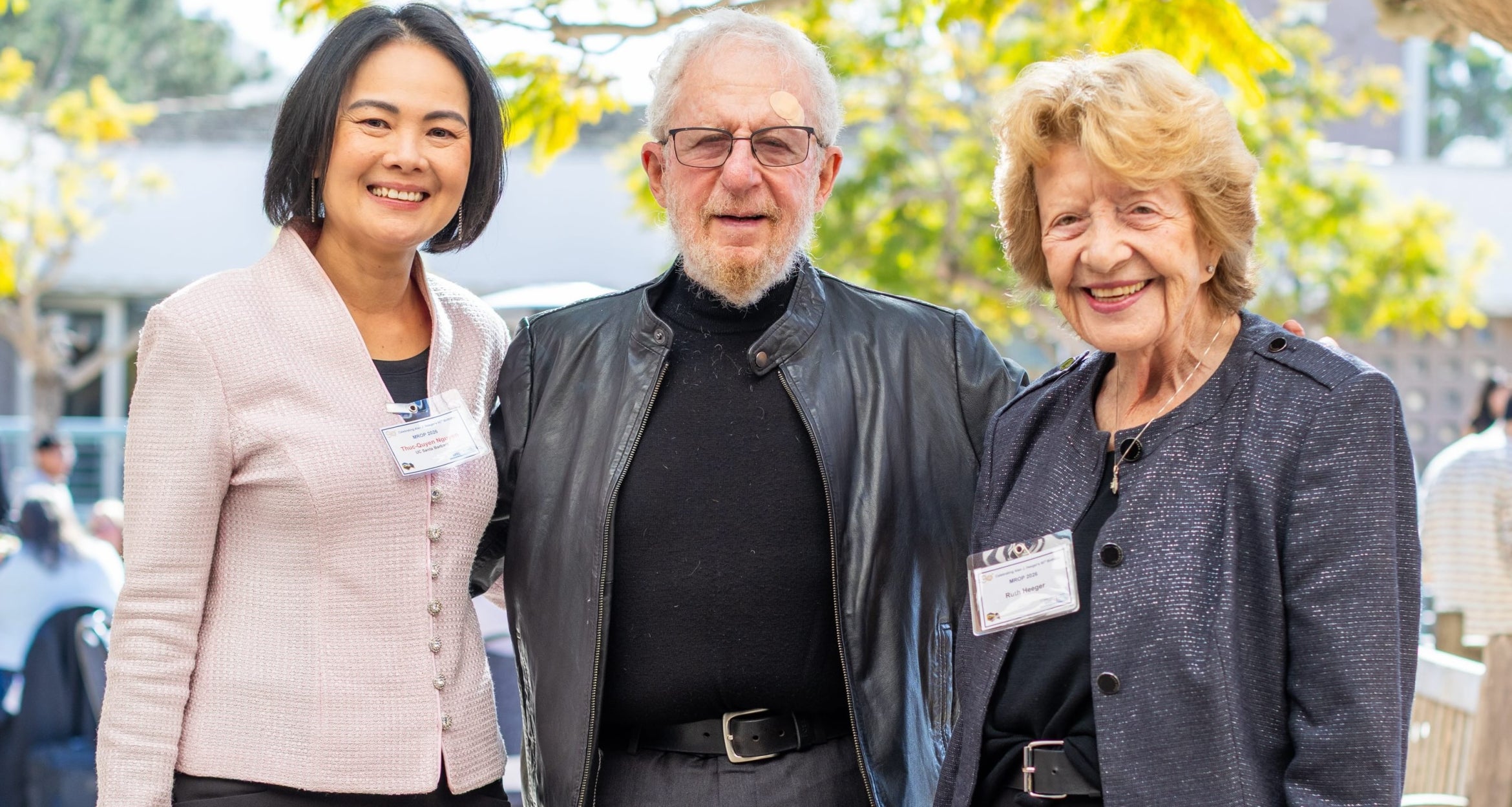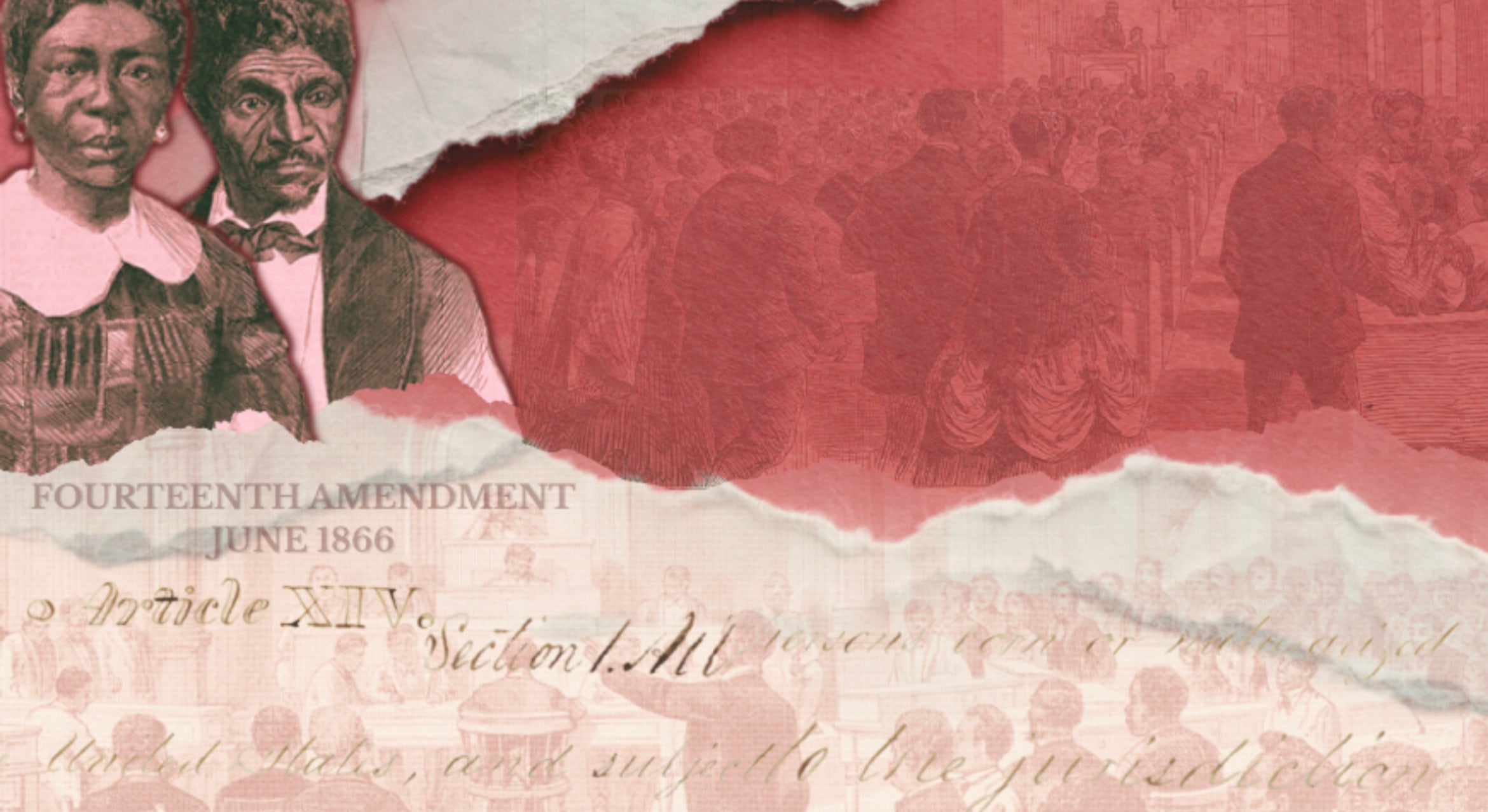Promises Kept

Holly Roose knows what it’s like to persevere through personal setbacks in pursuit of education — her own journey took her from high school dropout to Ph.D., to director of UC Santa Barbara’s Promise Scholars program.
Now, even in the face of a global pandemic, she has not stopped her work mentoring those scholars — more than 500 of them. “My meetings with the students are via Zoom or via phone now,” she said. “You know, whatever it takes. Every day it’s something different.”
Roose has had to think on her feet and come up with new ways to connect with her scholars as the campus has transitioned to remote instruction in efforts to slow the spread of COVID-19, but she remains committed to making sure that does not prevent any of them from getting a degree.
“Many of my students seem to be worried about how are they going to motivate themselves in a chaotic home environment,” she said. “I’m going to send a general check-in email to all 500 kids every Monday. Then if any need additional virtual face-to-face time, I’ll be available for them. I’m also going to start doing Zoom drop-in hours for students who need to just ask a quick question or want to chat.” And she plans to keep adding or adjusting services as needed.
It’s just one more hurdle for Roose, who has been adapting to difficult situations since childhood. Growing up on welfare in Alabama, she never thought she would earn any degrees, much less work in academia one day. No one around her did either.
“I acted out a lot in school,” recalled Roose, “I had a teacher pull me out of class in the fourth grade and say, ‘I hope you grow up pretty, because you’re never going to college.’ After that, I started skipping school and got my first F. I continued making Fs all through high school.”
Today Roose keeps a copy of her high school transcripts taped to her office wall to show students that education is a journey, and that grades are not the only measure of a person’s potential.
Her own turning point came by way of a professor who cared so much about her success that he had her meet with him each week. She learned, through his guidance, how to be both a good student (organized lecture notes are key) and a good human being prepared for the world around her.
“Really, he taught me everything,” Roose said of her mentor, Darrell Millner, of Portland State University, who championed her even when she doubted herself. His all-encompassing style of mentorship, she added, greatly influences how she approaches her work today.
“I can’t imagine how students survive without someone like him,” Roose said. “That’s what I want to be for our students here in this program.”
24/7 Approach
As her director title suggests, Roose oversees the Promise Scholars, a group of talented, low-income Californians selected for four-year scholarships to UC Santa Barbara. What it does not even hint at, though, is her relentless dedication to her job — so much so that her work and her life are inextricably bound.
Her goal is simple: to see every single one of the students in her program walk across the commencement stage. But the path to graduation is not always straightforward, and Roose is willing to go above and beyond the traditional duties of a mentor to make sure her students thrive.
In her four years on the job, she has never turned away a student. After she concludes her appointments and check-ins with students during work hours, often forsaking a lunch break, Roose makes herself available via email or text, for anything they might need.
Part of her 24/7 approach comes from her own academic experiences. “I remember being an unconfident student who felt like no one cared about me,” she said. “If someone said they didn’t have time to see me, I would just give up.”
Roose shepherds “her kids” (as she refers to them) through their college careers with a mixture of blunt realism and unending compassion — equal parts trusted academic advisor and sassy older sister. She is not one to sugarcoat.
“Your life is going to be messed up forever,” is one truth she often tells students who say that personal crises are making it hard to study. “It’s not gonna end just because you’re here. Your life isn’t going to get easier, so you have to figure out how to balance that with academics.”
A Long Road
Roose speaks with authority because her own path to graduation had a few twists along the way.
At 18, knowing she did not have the GPA to get into college, Roose became a hairstylist. While it helped her establish a life of her own, she says she craved more intellectual stimulation. So, at 25, she decided to try a community college class. She was shocked to get an A. So shocked, in fact, that she picked a math course for her second foray into higher education. She had never liked the subject, presumed that she would struggle and could tell herself college just wasn’t for her. She got an A in that class too.
Soon Roose decided that maybe she was a good student after all. She wanted to go to college, but she also wanted to get out of the south. “I randomly chose the cheapest metropolitan city on the west coast at the time, which was Portland, Oregon,” she said. “It was as far from Alabama as I could possibly get without leaving the country. I just up and moved, because you can do hair anywhere. I worked as a stylist that first year while I was figuring out how to get into Portland State.”
She continued cutting hair while putting herself through college, and began working closely with Millner.
With his guidance and encouragement, Roose went on to become a McNair Scholar (the federally funded program aims to increase the number of first-generation, low-income and/or underrepresented students in Ph.D. programs), and to eventually earn both her M.A. (from Columbia University) and her Ph.D. (from UC Santa Barbara).
All-In
She was offered tenure-track teaching positions, Roose said, but she turned them down to take her current job, working with young scholars who remind her in many ways of herself.
Her decision to do so — she again credits Millner for his advice — was based largely on her goal of saving as many kids as possible. Roose knew she could influence them as their professor, but she wouldn’t have the direct impact that she does now.
“If I left, those kids would be left to whoever came after me, and it’s not that I don’t believe that anyone can do this job,” she explained, “but most people are normal. I work 24/7. This is my entire life. Not that many people really want that.”
Her all-in strategy does get results. The majority of the inaugural Promise Scholars class graduated in June 2019, all with GPAs higher than 2.5. “To have our kids go on academic probation in that first quarter and then still graduate in four years as underrepresented minorities with higher GPAs than the rest of the campus, that was all I needed to know that we are doing the right thing,” Roose said.
Roose created the current structure of the program herself. If one of her cohort’s grades fall below a 2.75 GPA, that student has to come see her every week until things are back on track. Though she has a part-time assistant and five graduate student mentors who help her, she conducts most of those check-ins herself. These meetings are crucial, she said, because they give her insight into so much more than just homework.
“For example, one time a kid came in and said offhandedly that their parents moved to Nevada,” Roose recalled. Something about that sounded off to her, so she inquired further and learned that the student’s parents had suddenly become homeless. “I knew immediately that we were going to have a financial aid crisis, food insecurity issues, psychological issues,” she explained. “Then we can get all the services we need for that student immediately.”
Hands On, Always
A big part of Roose’s job is coordinating with a network of supportive contacts she has collected across campus. The second she hears about a student facing an issue like housing or healthcare, she is on the phone to the appropriate person in her support network. And Roose never just sends a student away with a name and number. She calls, makes the appointment and, if necessary, even walks the student there.
Her students notice and appreciate the extra effort. Sarah Davila, a sophomore Promise Scholar double majoring in English and theater, says Roose keeps her accountable. “Holly has been amazing in terms of helping me balance my insane schedule as an actor, singer and fulltime student,” Davila explained. “I have a back-to-back schedule of classes, meetings and rehearsals so I need all the help and support I can get. Holly never fails to make sure I am staying on top of all my assignments, line memorizations and mental health to help me survive the quarter.”
In addition to her job duties, Roose volunteers her time to co-teach an introductory class on time management and academic success, in which she applies many of the same hands-on strategies to 88 UC Santa Barbara undergraduates.
With so many students depending on her, Roose says she has at times worried whether her strategies would be effective. In the beginning, when there was little data about graduation rates or grade point averages, she would lie awake at night convinced that she wasn’t making a difference. “I created this programming from the ground up, so it’s on me if it doesn’t go well,” she remembers thinking.
Her worst nightmare? A failure of the upward mobility that higher education promises. Picture a student who takes out loans to go to college, struggles and fails with no one to help, and is then stuck in an endless cycle of debt. “That’s a lifetime of debt and further poverty for that family,” Roose said. “Coming to school here actually got them closer to homelessness than not coming to school here.”
On Top of It
Thankfully, her dedication and focus have kept most of her students from falling into this trap. Lately, Roose is excited to see that many of them want to dedicate some of their time to mentoring others. “A lot of times when they get on top of it (which is the phrase we use), they want to give back by mentoring other Promise Scholars or giving back to students who are like them,” she said. “To see them take off in flight is amazing.
Not that Roose has ever doubted the incredible potential of her students. Above all else, she believes in them, even when they don’t believe in themselves. It’s this ferocious certainty that they are smart and capable, and can rise above trauma and turmoil, that makes her program so successful. It’s exactly the sort of dedication that Millner showed her, and she pays it forward to her own students every single day.
“I see Holly as both a mentor and a big sister,” said Ramón Ríos, a senior Promise Scholar majoring in economics. “She’s the kind of person who always looks after others in a genuinely caring way. I try to stay out of trouble, but I know Holly has my back whenever things get rough.”
“I love them, and they know that,” Roose said of the scholars. “I’m not the nicest person all the time, but I know that these students can do anything. They just need someone to push them along the way.”



